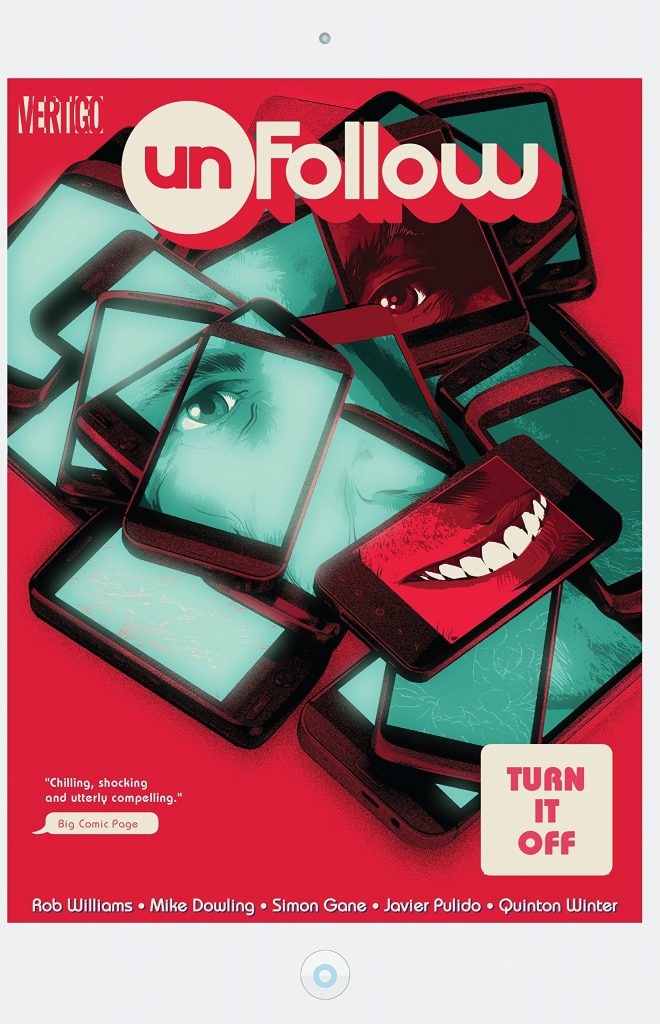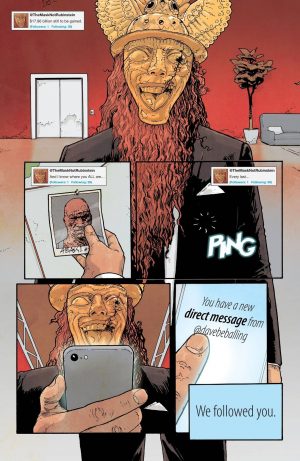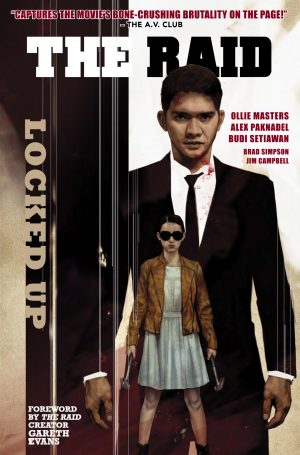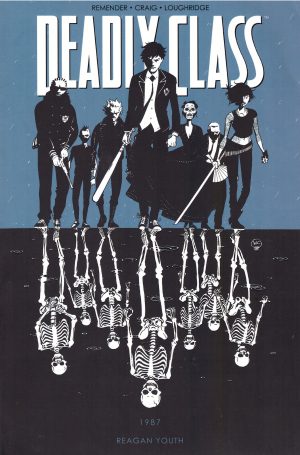Review by Frank Plowright
140 people were each given $131,000,000, to be paid in instalments. How would that change the world? Not for the better according to Rob Williams over the previous two volumes, and that doesn’t change. As with most things, the devil is in the small print, and a clause providing for the share of anyone who dies being split equally among those still living has resulted in multiple deaths by the end of God is Watching.
Rather than concentrate on the cannon fodder, Williams focuses Unfollow on a handful of recipients, most of whose pasts have been shown. In the opening chapter it’s the turn of Japanese writer Akira. We know what he did, and now the entire circumstances are revealed, guest artist Simon Gane not opting for subtlety as we see how Akira lost his legs. And what about Larry Farrell, the man whose money set everything in motion? Rather than a whole life we have a segment from it, perhaps the incident that turned a technological genius in into a paranoid manipulator. Both are horrific in very different ways, one a mind game with obsessions, the other just obsession, and the stark linear precision of Javier Pulido’s guest art is very different from Gane or Mike Dowling, but effective also.
Over the course of the series the progression in Dowling’s art has been surprising. He began as very good, but using a style that made everything look too clean. No-one could legitimately claim that about his final chapters here. He’s very much grown into the mood.
When Williams returns to the main narrative a year has passed, and much has happened. As seen in Dowling’s sample art, Rubinstein remains at large and the 140 have now dwindled to well under half. It’s just as well the survivors have learned some new skills. David’s progression has been logical for someone always put upon.
The feeling is that Williams is having to wrap up Unfollow quicker than planned, and that involves some compromises. We’re presented with Akira having founded a church as part of what seems to be Williams riffing on the idea of how followers are more important than government, a force to be activated, and no sooner is that introduced than it’s gone. As a whole the series would have benefited immensely from a chapter devoted to Rubinstein’s past and motivations, as without it he’s reduced to a random persistent nutter. These and smaller missing moments result in what’s ultimately an unsatisfying finale. Unfollow mimics the pacing and techniques of a long form TV drama, and while Williams does at least conclude it, it’s at the cost of little subtlety or foreshadowing, just the rush to the finish line. The pay-off for the animal symbolism is also weak. It’s a shame, as Unfollow started well, but obviously didn’t build up a big enough following for Williams to complete it in style.





